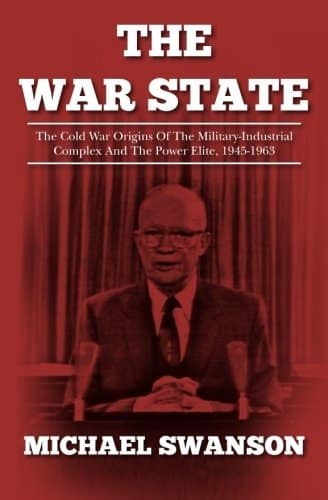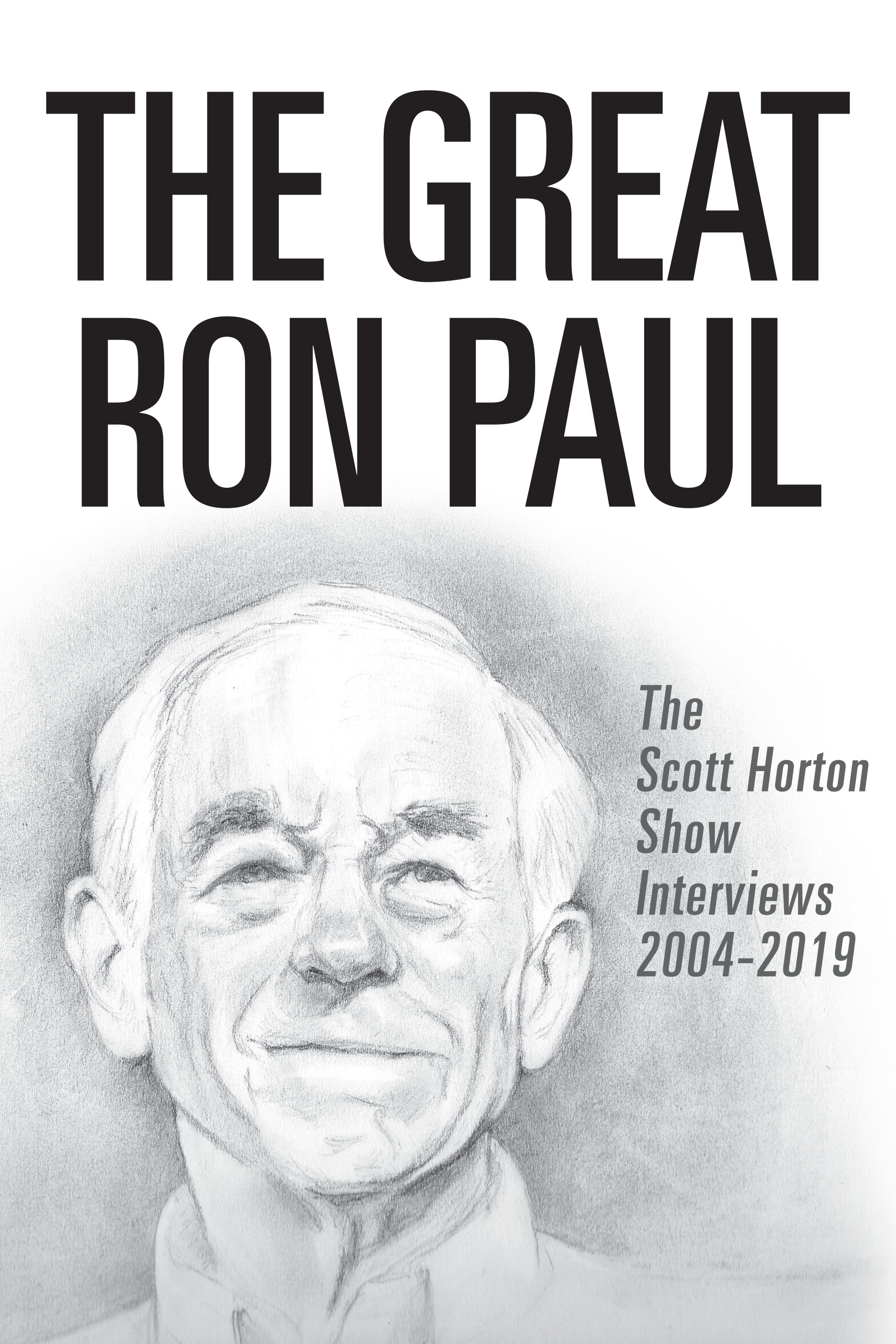President of the Future of Freedom Foundation Jacob Hornberger returns to the show to discuss the welfare/warfare state and the harm it's done to the country. Hornberger makes the case that today's national security state is a post-World War II creation to fight the Soviet Unions and totalitarianism, and not inherent to what the United States has been. Hornberger and Scott then discuss the role of the UN in building the American empire, what libertarians need to do to convince the left and the...
11/29/17 Reese Erlich on Saudi Arabia’s expanding role in the Middle East
Reese Erlich joins Scott to discuss Saudi Arabia and their new de facto King, Mohamed Bin Salman, the story behind Lebanon prime minister Saad al-Hariri's resignation and subsequent un-resignation, and the deep discord in Trump's state department over it all. Erlich and Scott then discuss Trump's heightened tension with Iran, how the Iraq War was a major gift to the Iranians, and why the concern for control of the global oil supply has determined much of U.S. foreign policy. Lastly, Erlich...
11/27/17 Aniqa Raihan on the unrecognized Bedouin villages of Israel
Aniqa Raihan joins Scott to discuss her article for Foreign Policy in Focus, “A Beginner’s Guide to the Unrecognized Villages of Israel.” Raihan explains how the bedouins of Israel—who are citizens—have been continually deprived of their homes, land, and other vital resources. The Bedouin people are regularly forced from their homes and villages, many of which are unrecognized by the state of Israel and reappropriated for other purposes. Scott then asks about the BDS movement; Raihan explains...
11/22/17 Gareth Porter on the latest bogus Iran-Al Qaeda claims
Investigative journalist Gareth Porter returns to the show to discuss his article for The American Conservative, “Translated Doc Debunks Narrative of Al Qaeda-Iran ‘Alliance’.” Porter explains how Americans are manufacturing a nonexistent relationship between Iran and Al Qaeda in much the same way they did with Al Qaeda and Saddam Hussein in the lead up to the Iraq war. Porter then details the specifics of the document and the context in which it was written. Scott and Porter discuss at length...
11/22/17 Michael Klare: the Threat of War with North Korea
Michael Klare joins Scott to discuss his latest article for TomDispatch.com “The Trump Doctrine: Making Nuclear Weapons Usable Again.” Klare describes how the U.S. nuclear weapons stock has been upgraded, making them operational in any possible scenario. According to Klare the Americans and the Russians are racing to upgrade their nuclear weapons to make them more flexible—all of which increases the threat of nuclear war. There’s a great paradox at work here: Trump is on the one hand being...
11/22/17 Phil Giraldi on the deal struck between ISIS and the U.S. in Raqqa
Phil Giraldi is the executive director for the Council for the National Interest. His latest article for Unz.com is “Boy Is This Stupid or What?” Giraldi details how the fight against ISIS in east Syria took a strange turn after the U.S. and coalition forces had reduced Raqqa, the capital of the caliphate, to rubble. After backing ISIS into a corner the coalition struck a deal with the remaining local fighters to leave under a conditional truce. Scott worries that scattered ISIS fighters—many...
11/21/17 John Duncan reflects on his 29 years in Congress
Representative John Duncan from the 2nd district of Tennessee joins Scott to discuss his impending retirement, his close friendship with Ron Paul, and how his antiwar views developed during his time in Congress. Duncan recalls his meetings leading up to the Iraq War with Condoleezza Rice and George Tennant and reflects on how his vote against the Iraq War went from being his least popular vote to his most popular vote. Duncan then discusses his article “There’s Nothing Patriotic or...
11/20/17 Derek Davison on 60 Minutes’ glaring omission about Yemen
Derek Davison joins Scott to discuss his article “60 Minutes Imagines a Different War in Yemen.” Davison recalls how 60 Minutes described the reality of Yemeni suffering—but with one major exception: it never mentioned the United States’ crucial role in enabling the war and blockade. Davison explains why the United States is involved in Yemen at all and that, while it began under Obama, it’s only gotten worse under Donald Trump. Further, while it seems the tides of public opinion may be...
11/15/17 David Ruiz on recent surveillance policy developments
Scott is joined by David Ruiz to talk about the latest developments to U.S. surveillance policy and how new policy is being written and passed to extend the spirit of expiring elements of the Patriot Act. Ruiz explains how the various elements of U.S. mass surveillance work, including how the FBI uses backdoor searches and parallel construction in order to construct cases against Americans. Scott and Ruiz attempt to assess just how much valuable intel is being collected by American spying, and...
11/13/17 Alfred McCoy on Opium production in Afghanistan
Professor and author Alfred McCoy joins Scott to discuss his latest article “Washington’s Drug of Choice in the War on Terror.” McCoy describes how heroin first became a major factor of the Afghan economy and credits the Taliban’s capture of the illicit opium market for their recent resurgence. According to McCoy, at the peak of the Columbian cartel’s operations cocaine made up 3% of Columbia’s GDP; in Afghanistan in 2008 it was 58%. McCoy then details how all of the U.S. programs to...
11/13/17 Stephen Walt on Charles Koch’s new institute for foreign policy research
Harvard professor and author of the “The Israel Lobby And U.S. Foreign Policy,” Stephen Walt joins the show to discuss Charles Koch’s latest initiative to create a multi-million dollar grant for graduate and doctoral students to study U.S. foreign policy at MIT and Harvard. Walt briefly describes how the grant came about and then discusses with Scott the modern state of U.S. foreign policy debate in academia and why there has been striking uniformity in the post-Cold War era. Stephen Walt is...
11/10/17 Nasser Arrabyee on the escalation of the U.S.-Saudi war in Yemen
Nasser Arrabyee returns to the show to give his latest update on the devestation from the U.S.-Saudi Arabian war in Yemen. Arrabyee confirms that more than 900,000 people have contracted cholera and discusses the recent retaliatory strike by the Houthis against the Saudi airport and the latest developments in the U.S.-Saudi blockade, which the U.N. warns could kill millions of people. Arrabyee explains how Yemeni deaths have been vastly underestimated and dispels the myth that this is a moral...
11/7/17 Rick Sterling Reviews the Evidence from the April Syrian Sarin Attack
Investigative journalist Rick Sterling joins Scott to discuss his story for Consortium News “The Trumped-Up Syria-Sarin Case.” Sterling goes through the play-by-play of the attack in Khan Sheikhoun in April, 2017 and what has come to light since then. Sterling comprehensively addresses the major details and outstanding questions from the attack, starting with the earliest reports, including Phil Giraldi breaking the newson Scott’s show back in April, to the latest developments of his...
11/16/17 Scott Paul on the latest devastating Saudi blockade in Yemen
Senior Humanitarian advisor at OxFam America Scott Paul returns to the show to discuss the latest developments in the U.S.-Saudi war in Yemen. Paul explains that the situation has gone from bad to gruesome with the latest Saudi blockade following the Houthi attempted missile strike of the Saudi airport at Ridyah. According to Paul seven million people are attempting to survive on one meal a day while cholera cases continue to soar. Paul says that aid is the first major step, but that a...
11/15/17 Grant Smith on Americans’ waning patience for military spending
Grant Smith, director of the Institute for Research Middle Eastern Policy returns to the show to discuss his latest article for Antiwar.com "Poll: Americans Would Cut Middle East War Spending." Smith promotes the IRMEP's upcoming 2018 conference and explains why he believes the organized Israel lobbying groups are, contrary to their claims, unrepresentative of American Jewish communities. Scott and Smith then discuss whether Israel needs the United States' continual aid and why...















